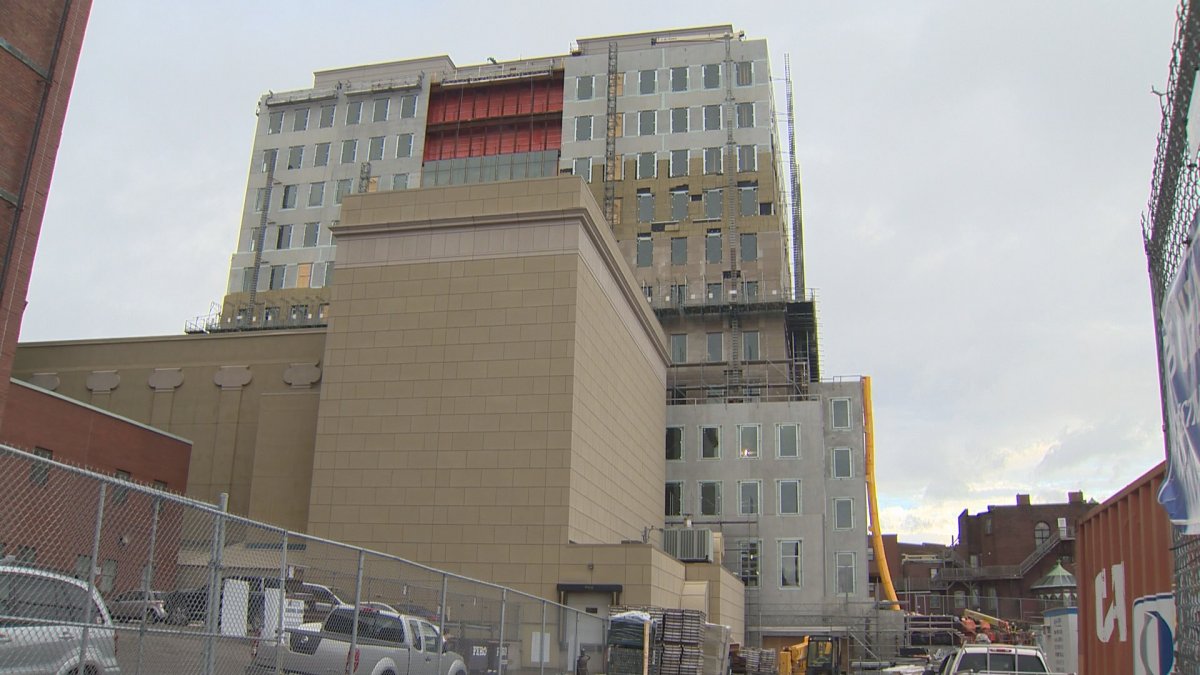A jury has released its recommendations on how to improve safety at construction sites in New Brunswick after an inquiry into the death of Christopher Adam Carleton.

Carleton, an insulator with Grandview Insulation, fell from a 10-foot ladder onto his head on Feb. 5, while insulating pipes at the Irving Oil headquarters project in Saint John.
Carleton died in hospital from his injuries the next day.
READ MORE: Coroner’s inquest to be held into death at Saint John construction site
The five-member jury, consisting of three women and two men, recommends that if a trade requires working from a lift or ladder, it should be mandatory to have a different style of helmet than a regular hard hat.
The helmet, such as a “climber’s” helmet, should be snug, fitted with a chin strap and would stay on the worker’s head.
The jury also recommended that where practical, people required to work at heights should be required to use the most stable form of elevating equipment. Man lifts and industrial staging are used as an example of the most stable, while the use of a ladder is referred to as the least stable.
Christopher Adam Carleton
The inquiry into Carleton’s death began on Monday and examined the safety of people working at height in construction sites.
READ MORE: Inquest begins into death of construction worker at Irving’s Saint John HQ
Originally from Barnesville, N.B., Carleton was a certified electrician and, according to his obituary, loved his work.
“[He] had a fabulous sense of humour and loved to make people laugh. He had a passion for playing guitar and had a love for music,” the obituary reads.
WorkSafeNB recommended that no charges be laid after an investigation into the incident but under the province’s Coroner’s Act, an inquest is mandatory whenever a “worker dies as a result of an accident occurring in the course of his or her employment at or in … a construction project site.”
Inquests do not make findings of legal responsibility but do make recommendations “aimed at preventing deaths under similar circumstances in the future.”
WATCH: Inquest into work place death of Saint John construction worker begins

What comes next
The chief coroner will now forward the jury’s recommendations to the appropriate government departments and agencies for consideration.
The responses will be included in the chief coroner’s annual report for 2018.
- Invasive strep: ‘Don’t wait’ to seek care, N.S. woman warns on long road to recovery
- Grocery code: How Ottawa has tried to get Loblaw, Walmart on board
- ‘Super lice’ are becoming more resistant to chemical shampoos. What to use instead
- Canadian food banks are on the brink: ‘This is not a sustainable situation’




Comments